Last week I went to LA, rented a convertible, and had a vacation during which I couldn’t shake a hum of anxiety. Would I make my 6 a.m. flight? I did, my bags set out by the door so I didn’t have to think at 4:30 a.m. Would I have enough money? I did, having budgeted it from my profit allocation this quarter from my business. Was I going to be in trouble when I got home? I wouldn’t, because I earned this trip.
Despite one slip-up that was fine in the end (I am only human after all), this trip was not a disaster. I didn’t get lost or need help or cry when I checked my bank balance at an ATM. I am simply not used to this, because I grew up broke and continued with my broke habits well into my adulthood.
Growing up broke
We were not poor; we were broke. Being broke was this: watching the RPMs on my mom’s car skitter and die as she tried to start it. Knowing we would be late. Or we wouldn’t be able to go. And now we had to find a phone. Now we had to apologize, again. Now we had to find the money for a mechanic.
Growing up broke taught me to hold real still, watch my mom’s face, and wait for what was going to happen next.
Being broke takes a lot of your time and it takes a lot of your energy. I think that many artists who do grow up broke become writers because the low cost of materials. So if you grew up in a family that had a hard time paying the bills, the adults around you were probably so busy trying to keep food on the table and rent money in the bank that the skills they passed on were ones of surviving, rather than thriving; reacting, rather than acting; solving, rather than planning.
It took a lot of work, books, and friendships with the money gurus I met through my Fuck Off Fund piece, to finally (mostly) replace broke habits with thriving habits. In order to move toward a more joyful and successful writing life, I had to learn these five key tenets of thriving.
Here’s what I’ve learned about moving beyond the skills of surviving to those of thriving:
1. Don’t confuse what you got for what you deserve
Lately, I’ve been rethinking clothes. I grew up wearing cheap clothes, used clothes, my sister’s (or brother’s) clothes. Nothing ever fit quite right.
Over the last year, I recognized both a yearning to dress better and a responding spirit, something along the lines of, “Who are you to dress well?”
Actually, this wasn’t a spirit. It was a ghost.
You are allowed to go after more for yourself. It doesn’t mean you think you’re entitled to it, you deserve it more than others, or you’re better than anyone else. It’s about playing this game of life and going after what’s available to go after.
2. You have the power and the right to affect your environment
A few years ago, a friend and I sat in a public space with huge windows and a rolling set of blinds. Late afternoon, the sun started to stream in. A stranger near the window began to close the blinds. My friend interjected, “Would you leave those open a little, please? I feel claustrophobic when things are closed up.”
Her statement wasn’t rude or self-important, she simply advocated for her needs. She thought her opinion mattered. If I knew nothing else about her, I would have known she didn’t grow up broke.
This particular friend had mentioned before that she grew up with some privilege. She grew up in a world that told her she had agency over her environment. She believed her needs mattered as much as anyone else’s.
To me, this is the opposite of a refrain broke kids hear, a refrain I heard at the cheapest, most over-crowded summer camps: “You get what you get.”
When you hear that you get what you get enough times, you start to believe it, even when it becomes about more than the flavor of your ice pop. It becomes about your job, your partner, your salary.
The things you can control are within what’s called your locus of control. When you’re broke, your locus of control is very small. Other people have control over much of your life. But you can grow this locus of control.
As a young adult, I’d decided that because my family was a financial disaster, and because I lost my dad at 17, life just happened to me. And it would either screw me over, or it would reward me, but either way my fate was in someone else’s hands.
During those years, and for many after, I was possessed by a victim mentality — waiting for a knight to arrive with a life-changing opportunity written in calligraphy on a scroll. It was as though I was waiting for permission to thrive.
I needed Peace Corps to kick my ass and wake me up, which it did.
3. Well-off people have a head start, but not a monopoly, on networking.
They tell us: “It’s not what you know but who you know.” And we, being broke and most likely knowing a lot of other broke people, so often think we’re just screwed. Plus, no one told us what networking really was or explained the power behind it.
I once read that for most people, their top priority in college is networking. Excuse me? The word “networking” didn’t cross my mind once in college. Was this some kind of beer funnel configuration?
Networking is hella powerful, essential, and a power that can be built from scratch.
Here’s the way to think about it: It’s not who you know, it’s who you meet and cultivate relationships with.
Networking is easier when you have money. You can attend conferences, take classes with teachers, and pay to work with editors.
But it’s also never been easier to network for free.
- Read books from the library and write to the authors.
- Go to poetry readings and hang out.
- Join book clubs and online groups.
- Volunteer for events like AWP and do Couchsurfing.
- Engage with writers on Twitter.
You no longer have to pay for access, but you do have to make the effort.
And one thing successful people understand is how important that effort is. People have to know you exist in order to hire you.
4. There’s a thing called setting yourself up for success.
I didn’t hear about this concept until my best friend had children and she talked about setting up a situation with kids for success. I was like, wow, that idea would have been real helpful for life up until now.
Setting yourself up for success means being a friend to your future self. For example, I was just on a camping trip, and I wanted to hang out all day Sunday, but I said no, I’m going to be nice to Monday Paulette and set her up for success with clean laundry.
Setting yourself up for success can take multiple forms:
Make a checklist
Have you read The Checklist Manifesto? Make a checklist. Checklists galore. Have a whole Notes App folder of checklists. I have a walking out the door checklist, a camping checklist, and checklists I’m too embarrassed to tell you about.
Invest in the right tools
Growing up, I remember slicing every package and envelope open with a butter knife and almost killing myself in the process because the scissors were always missing.
As an adult I take extra care in having the tools to tackle what’s in front of me, and more importantly, knowing where to find them. Sometimes, putting more effort, time, or cash upfront can propel you from surviving to thriving.
The tools for my writing life are a laptop that doesn’t freeze and die and lose my work. It’s Scrivener, Squarespace, and Buffer.
Take time to plan
I think planning is one of the most atrophied skills of the broke. How are we supposed to look ahead when today’s problems are right in our face? How are we supposed to know what’s going to happen when we feel so out of control of our future?
Like my trip to LA, I’m still so surprised when I plan something and it actually happens.
Planning begins with envisioning what you want to happen, how you want it to feel, and then backtracking from there.
- What tools do you need to get there?
- What preparations do you need to make?
- How can you account for what might go wrong, and what will be your plan B if it does?
What I’ve learned is that planning is a part of the doing.
Give life a little space to be wild
Life is a wild animal. You need to give it some room. As a kid, you think life is your pet doggie. Then one day, Fido goes rogue.
It took many years before I learned the joy of the life buffer: a tiny pillow of money, time, or space. The buffer buys you time to plan, buys you peace of mind, and buys you opportunities to build. When you’re broke, you get so used to living without one, you have no idea how nice it is to have it.
Money that can afford to wait will always be better. (Yes, my family committed payday loans, so I know all about the cost of money that can’t wait.) Planning to show up 15 minutes early always means you arrive a little less sweaty.
5. The antidote to powerlessness is education
When I was younger, I wore the title “self-taught” like a Miss America sash. I started making jewelry because I couldn’t afford to buy any, and I taught myself to do it because I couldn’t afford lessons.
Then one day I saw a jewelry-making book. I picked it up and flipped through the pages, and happened to see instructions on securing a clasp, an issue that had been killing me for years. Oh. How much time and frustration would I have been saved if I’d just picked up this book years ago? Why had I needed to be self-taught?
Once you start investing in your education, no matter the area, your opportunities multiply.
Easy and cheap places to start are reading free books in a local library. Every book you read makes your time more valuable, and you can leverage that to perhaps take classes, then hire a coach.
You’ll notice people at the highest levels of success amassing coaching armies. Pro athletes have trainers, chefs, sports psychologists, doctors, and beyond. Obviously, they have the monetary means, but it proves the value of seeking expertise. It takes you to the next level.
Learning to thrive as a writer
It’s taken me decades to adopt these lessons, and while I’ve improved, I’m still working to unlearn so much of how my broke childhood morphed my mind. There are tools that can tighten the screws of your non-broke identity, but in order to really thrive, your first investment must be in yourself. Without a sturdy foundation paved in self worth, there’s no place for abundance to build.


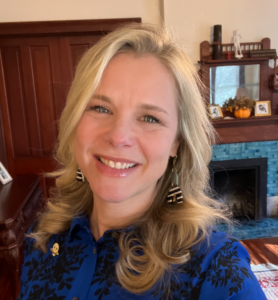

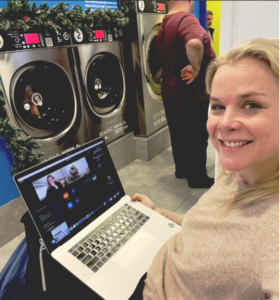
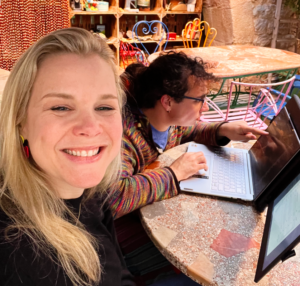

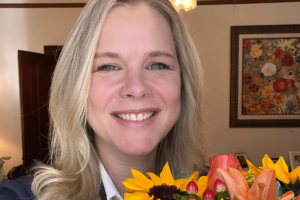

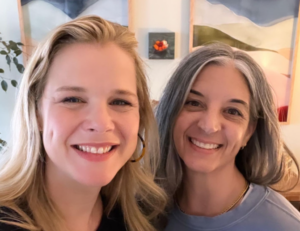


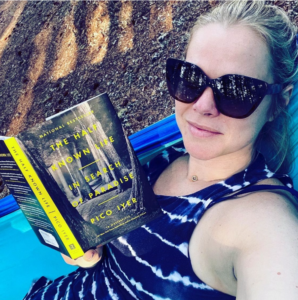

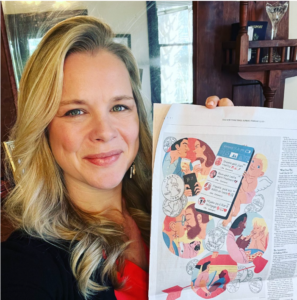



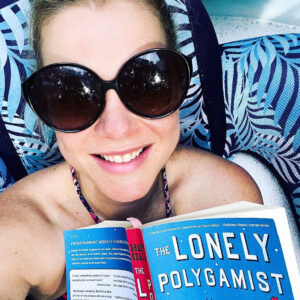
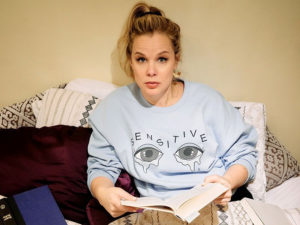
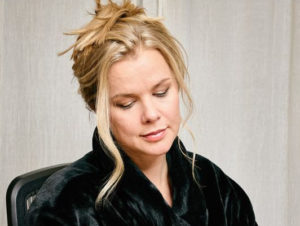
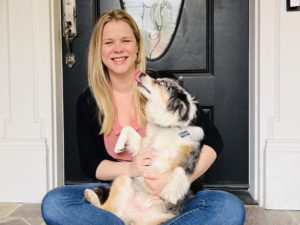
This Post Has One Comment
One of the great things about planning fun things is that you’re already getting a head start on the fun. There’s a saying about fishing that captures it: The fishing trip begins when you decide to go.
Comments are closed.